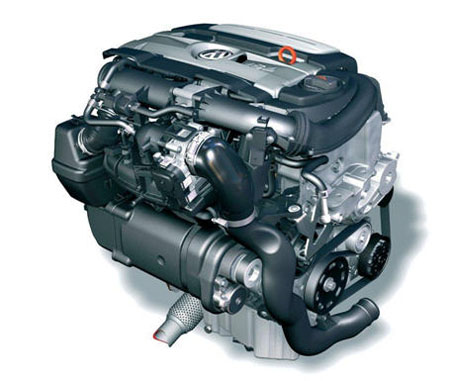This is Scientific American — 60-Second Science. I'm Christopher Intagliata.
If you've gone shopping for a car lately, you might have noticed that fuel economy—the number of miles per gallon—is slowly creeping up. One reason is a more efficient type of fuel injection, called gas direct injection. It's a feature of half the new cars sold in the U.S. last year.
"With that kind of engine design you can also introduce turbocharging—that's really what it comes down to: more engine power with a smaller engine." Naomi Zimmerman, an air-quality scientist at Carnegie Mellon University—who has, by the way, never owned a car. "Probably because I did a whole PhD on engine emissions."
Here's how the two injection methods differ. In the old standard, called "port fuel injection," gas is injected into the air intake, where it mixes with air before hitting the cylinder. In direct injection though, as the name implies, the fuel is injected directly into the cylinder. It's more fuel efficient, meaning lower CO2 emissions, which will help slow climate change. But here is a paradox, it also emits more particulate matter, including black carbon, or soot—a pollutant implicated in global warming.

Zimmerman and her colleagues analyzed studies of direct injection engines to see how this pollution tradeoff works out for the climate. "The answer is that it's really complicated and it's not certain." But on average, she says, boosting fuel economy five to nine percent would probably cancel out the warming effects of black soot, and score a net positive for the climate. The findings are in the journal Environmental Science and Technology.
The fuel economy goal might be different in places with big temperature swings, and where gasoline has more aromatic compounds—which seem to boost black carbon emissions. One place that fits the bill: Canada. "There we might need to be closer to the 10 percent, 15 percent mark in terms of improving fuel economy. Which is actually a very aggressive increase in fuel economy."
She says one solution that might reduce black carbon emissions is gasoline particulate filters. Which would also screen out particulate matter dangerous to human health. Meaning a win for the planet—and the people who live on it.
Thanks for listening for Scientific American — 60-Second Science Science. I'm Christopher Intagliata.











